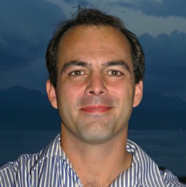
Dr. Tim Vogels is a German-born computational neuroscientist working at the Centre for Neural Circuits at the University of Oxford. He studied physics at Technische Universität Berlin and neuroscience at Brandeis University. Tim received his PhD in 2007 in the laboratory of Larry Abbott. After a postdoctoral stay in experimental neuroscience with Rafael Yuste at Columbia University, he returned to computational work and to Europe as a Marie Curie Reintegration Fellow in the laboratory of Wulfram Gerstner at the École Polytechnique Fédérale de Lausanne (EPFL). Tim was awarded the Bernstein Award for Computational Neuroscience in 2012. In 2013 he moved to Oxford to establish his own research group. As a computational neuroscientist, he builds conceptual models to understand the fundamentals of neural systems at the cellular level. His research group is funded by a Sir Henry Dale Fellowship of the Wellcome Trust and the Royal Society.
The Vogels group is looking to build models of cortical networks that contain our cumulative current knowledge. In particular, we are interested in the neuronal interplay of excitatory and inhibitory activity in cortex and how theses dynamics can form reliable sensory perceptions and stable memories. Our aim is to validate or falsify some of the current ideas of how the brain works, and to generate testable predictions of cause and effect in active neuronal circuits. We hope to contribute to a more targeted approach to both experimental work and clinical application by suggesting what questions to ask, and what answers to expect from the ever growing flood of new in vivo and in vitro data.